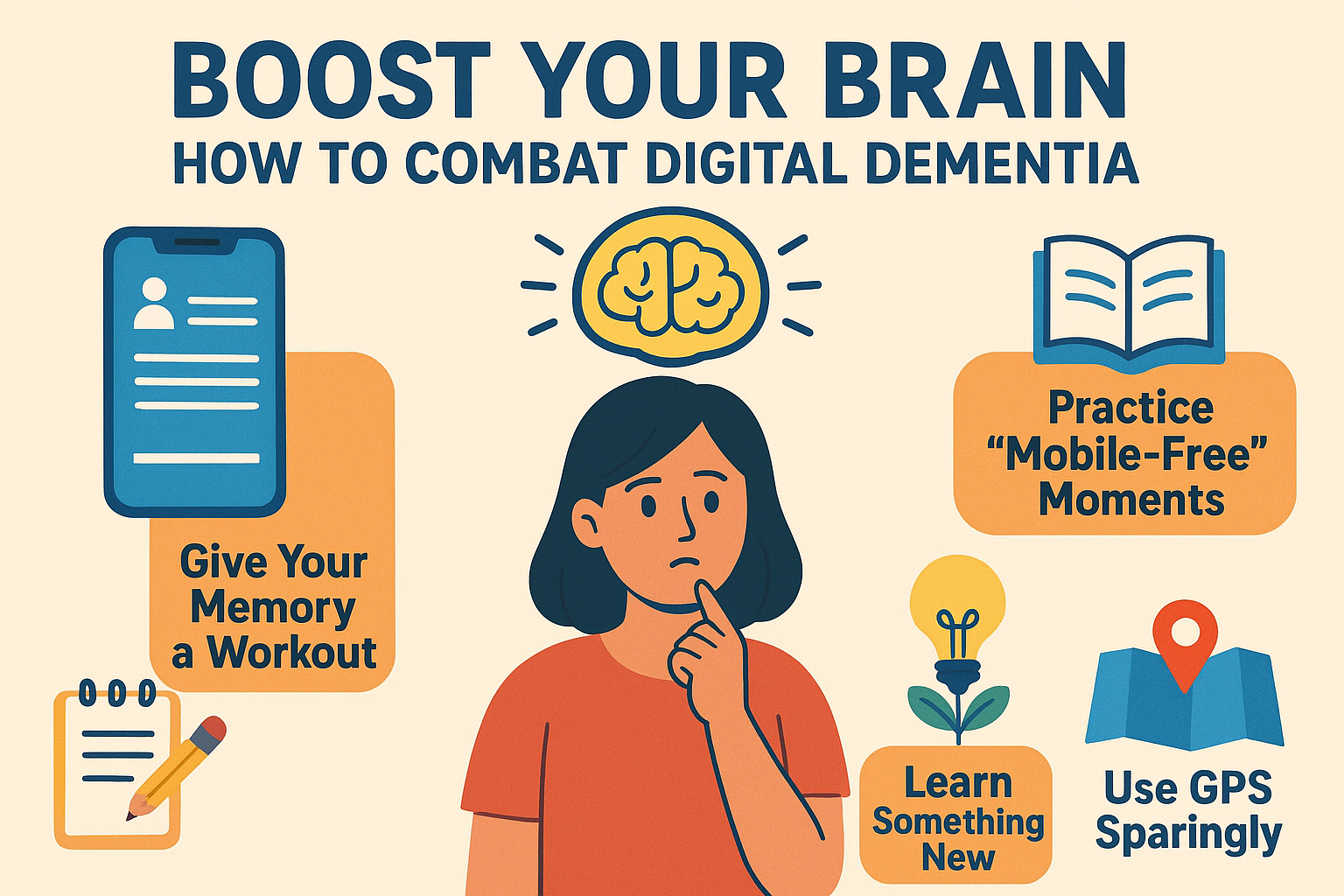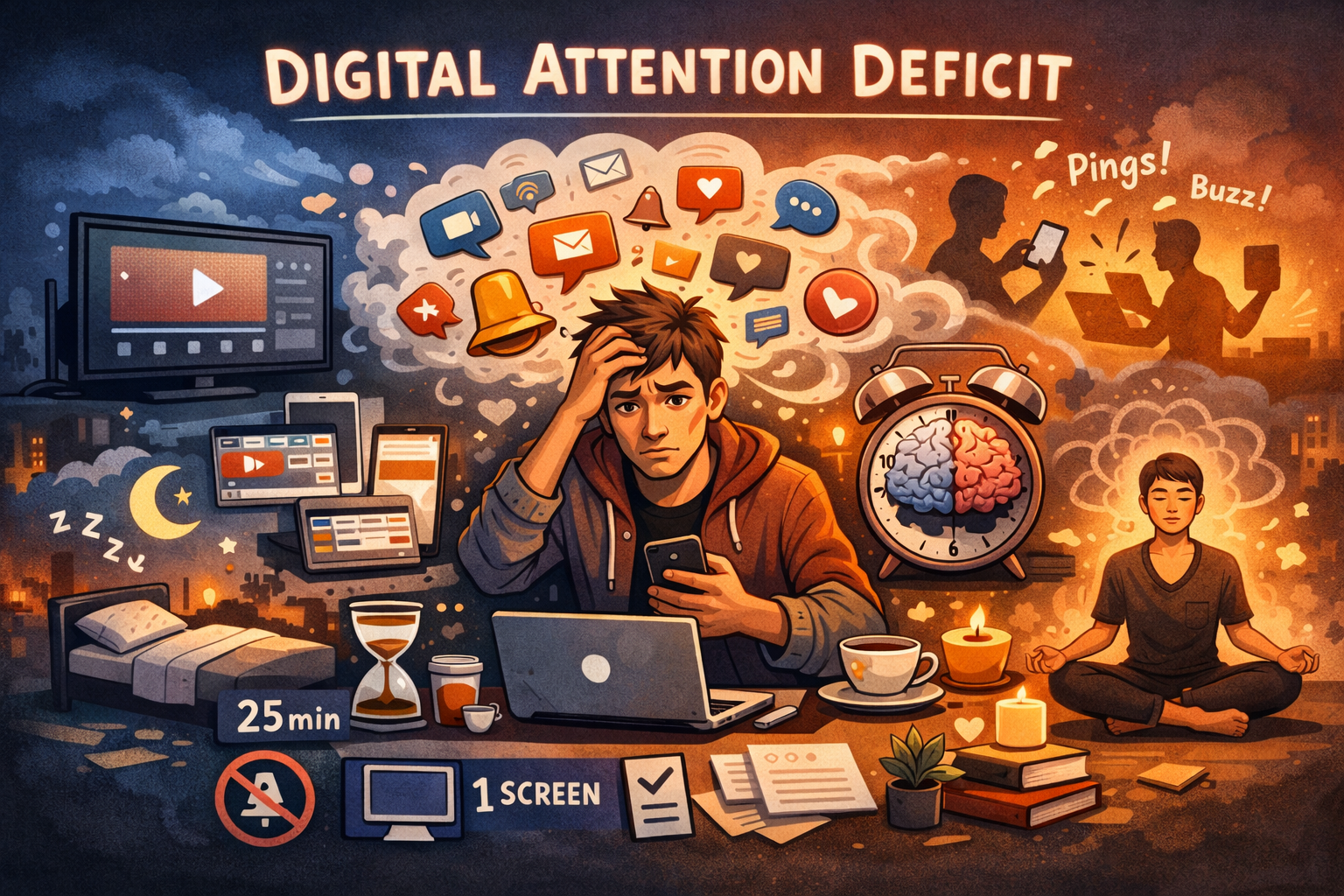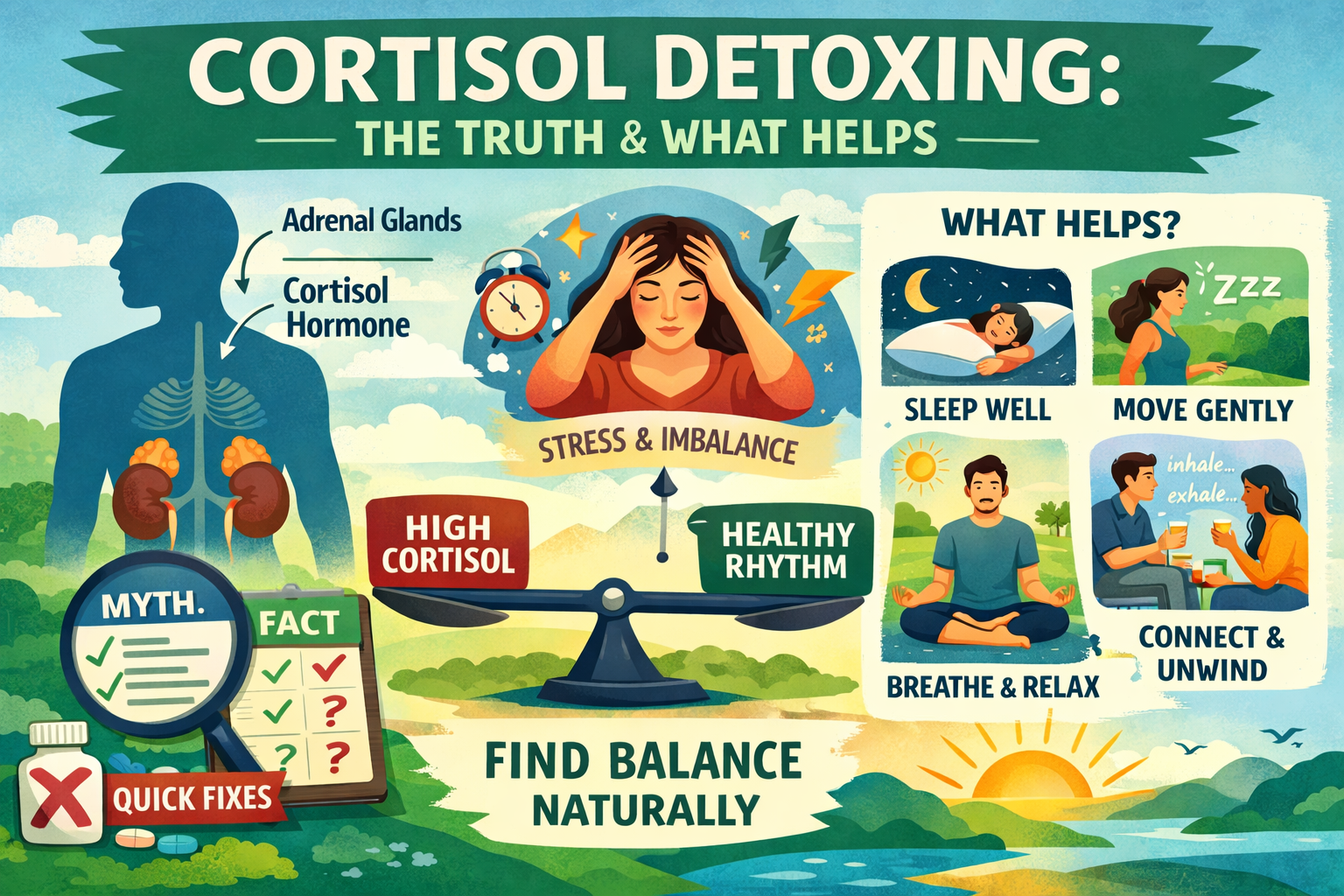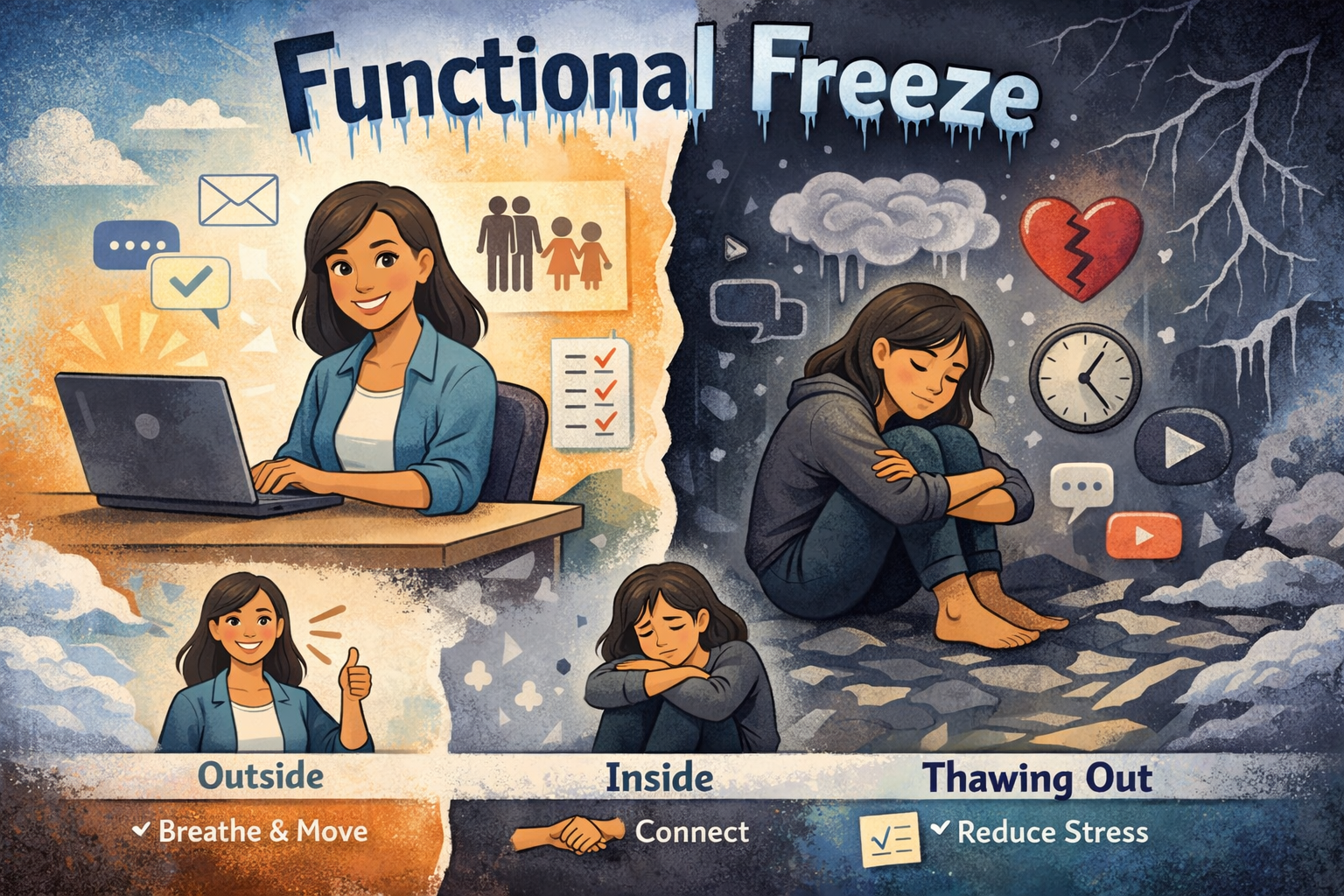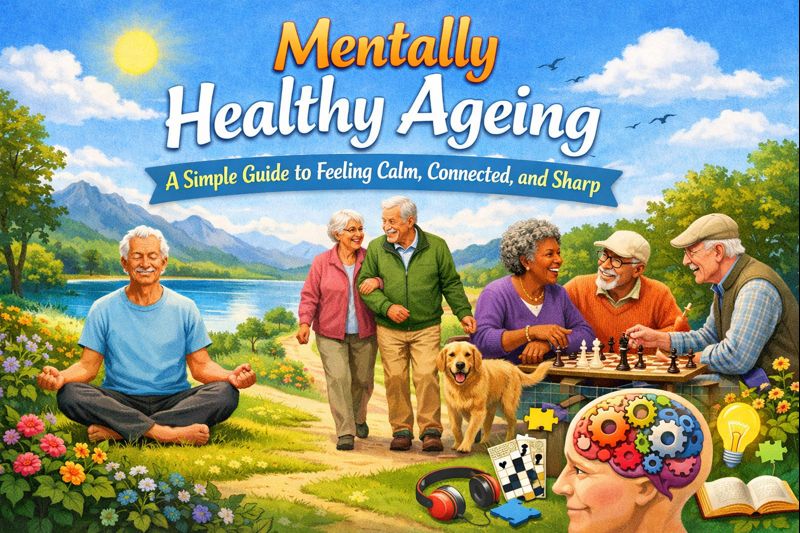The digital revolution has completely changed who we are. We have moved from an old-fashioned, analog world to a digital one, and now everything is instantly connected. We used to just watch TV or read the newspaper, but now we are all part of the conversation. Our phones and social media let us talk to anyone, anywhere, anytime. As we get more high-tech with things like AI, we are not just using these tools—they are, in fact, using us and changing us too.
We are now living in a time when our phones remember more than we do. Birthdays, phone numbers, directions, even what we need from the grocery store — all neatly stored in a device we carry everywhere. While technology has made life incredibly convenient, scientists warn of a new threat to our minds: digital dementia.
The term might sound like a sci-fi plot twist, but it is a real and growing concern. Originally coined by South Korean researchers, digital dementia describes the cognitive decline that happens when we rely too much on digital devices, leading to memory problems, shortened attention spans, and reduced critical thinking skills.
What's Really Happening to Our Brains?
Our brains are like muscles — the less we use certain parts, the weaker they become. Constantly outsourcing tasks to our devices means we are not exercising our memory, spatial awareness, or problem-solving skill as much as we were used to do in the past.
A 2017 study published in Memory found that people are more likely to forget information if they know they can look it up later — a phenomenon known as the Google Effect. Dr. Betsy Sparrow, one of the researchers, put it simply: "We're becoming symbiotic with our computers."
And it is not just memory that is at stake. Overuse of screens has been linked to structural brain changes. A 2019 MRI study from Beijing Normal University found that excessive smartphone use was associated with reduced grey matter in areas linked to attention control and decision-making.
Signs You Might Have Digital Dementia
You do not need a medical degree to spot the warning signs:
- Forgetting names or numbers you once knew by heart
- Struggling to focus on a single task without checking your phone
- Feeling mentally "foggy" after long periods online
- Depending on GPS for routes you used to navigate easily
While these symptoms can have many causes, in the context of a digital-heavy lifestyle, they might signal your brain is underused in certain areas.
Why This Should Concern You
Memory isn't just about remembering facts — it's tied to creativity, problem-solving, and even emotional intelligence. When we let our devices handle all the remembering, we risk dulling skills that make us uniquely human.
Psychiatrist Dr. Manfred Spitzer, author of Digital Dementia: What We and Our Children are Doing to Our Minds, warns: "The more time we spend in front of screens, the less our brains are challenged to think, to learn, to create."
How to Protect Your Brain in the Digital Age
The good news? Digital dementia is not irreversible. By making small but consistent changes, you can strengthen your brain and keep it sharp.
1. Give Your Memory a Workout
Challenge yourself to remember phone numbers, birthdays, or shopping lists without using your phone. These small acts train your brain's recall ability.
2. Practice "Mobile-Free" Moments
Set aside daily screen-free time. Even 30 minutes of reading a physical book, gardening, or walking without headphones can help your brain reset.
3. Learn Something New
Pick up a new hobby — cooking, playing an instrument, or learning a language. Novel activities stimulate neural pathways and promote neuroplasticity, the ability of the brain to change structurally with new experiences, learning etc.
4. Use GPS Sparingly
Try navigating familiar routes without your phone. This boosts spatial memory and strengthens the hippocampus, the part of the brain responsible for navigation.
5. Improve Your Sleep Hygiene
Blue light from screens disrupts melatonin production, affecting memory consolidation during sleep. Aim to stop screen use at least an hour before bed.
The Role of Mindfulness
Mindfulness is our ability to be present on the moments at hand. When we are mindful, we observe the surrounding world, inner as well as outer in non-judgmental way. It is not just a wellness trend — it is a brain booster.
A 2011 study in Psychiatry Research: Neuroimaging found that participants who practiced mindfulness meditation for eight weeks increased grey matter density in the hippocampus. Even a few minutes of mindful breathing daily can help counter the attention fragmentation caused by constant notifications.
Balancing Tech and Brain Health
Technology is not the enemy — the way we use it is. Smartphones, AI assistants, and search engines can enhance our lives, but they should not replace our mental effort. Think of devices as tools, not crutches.
As Albert Einstein once said: "The measure of intelligence is the ability to change." By becoming more intentional with technology, we can enjoy its benefits without letting it dull our mental edge.
Final Thoughts
Digital dementia is a wake-up call for all of us in the hyper-connected world. Protecting your brain doesn't mean abandoning technology — it means using it wisely while keeping your mental muscles active.
So the next time you reach for your phone to remember something simple, pause. Give your brain a chance to do the work. It might thank you years down the line.
Are you looking for inner peace, deep relaxation or holistic solutions for mental health? Visit http://themindtherapy.in - your space for online counselling/therapy, free mental health tests, meditation, sound therapy etc.
Mind Therapy is India's trusted platform for mental health, mindfulness, and holistic healing. Explore expert-led programs, guided meditation, sound therapy and counselling at http://themindtherapy.in


